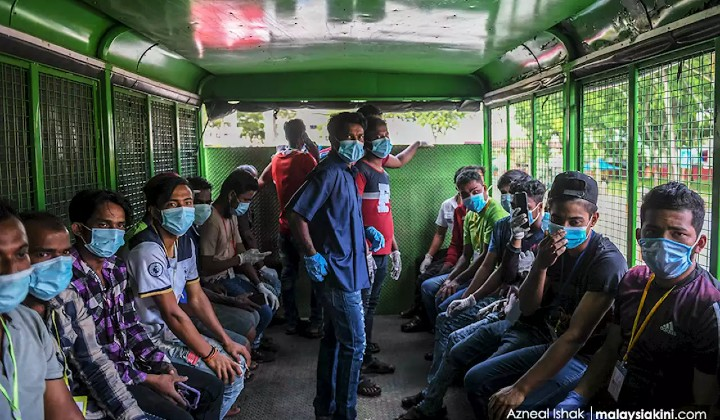The Impact of Covid-19 on Migrant Workers in Malaysia
In Malaysia, the Covid-19 situation is worrying in terms of the number of new infections which is increasing daily. This now outnumbers those that have recovered and been discharged from hospitals. Clusters of Covid cases were found among migrant workers whose cramped living conditions make it impossible for them to maintain physical distance. Since then migrant workers have been labelled as spreaders of the disease. This label has stuck, even though most communities of migrant workers have been tested and found to be Covid negative.
For some time now the government has been trying to strike a balance between the need to impose restrictions on movement and physical proximity of people, and ensuring that the economy and peoples' livelihoods are not ruined. Unfortunately, it does not seem to have succeeded in either objective.
Restrictions and Penalties
Travel across state boundaries without specific approval from the police is generally prohibited. Such travel approval may be obtained if employers or businesses provide documentary evidence to support applications. Hefty fines and penalties are imposed on those who break the travel restrictions and other regulations such as the compulsory wearing of masks or physical distancing. The penalties are sometimes spuriously imposed and can be excessively harsh on those with low or no income. The fine for not wearing a mask is RM1000 which is imposed irrespective of the income level of the accused, when the minimum monthly income is RM1200. Some have ended up in prison because they lack the financial resources to pay the penalty.
Migrant Workers
Migrant workers are confined to their dormitories or given very limited time to go out to attend to their personal needs. The apparent reason for such restrictions is to minimize the risk of infection by the Corona virus. As a consequence it has become very difficult for NGOs like Tenaganita to do outreach work among migrant workers. Refugees and migrant workers who are found guilty of any offence, including Covid related offences, face a double jeopardy. They have to serve a prison sentence, after which their work permit is revoked and they are held in immigration detention centres to be deported.
The depressed level of economic activities and the cutback in employment opportunities have made migrant workers even more reluctant to talk about their work situations to strangers for fear of losing their jobs. This is another challenge for those monitoring factories and protecting worker rights.
Tenaganita
19 April 2021


